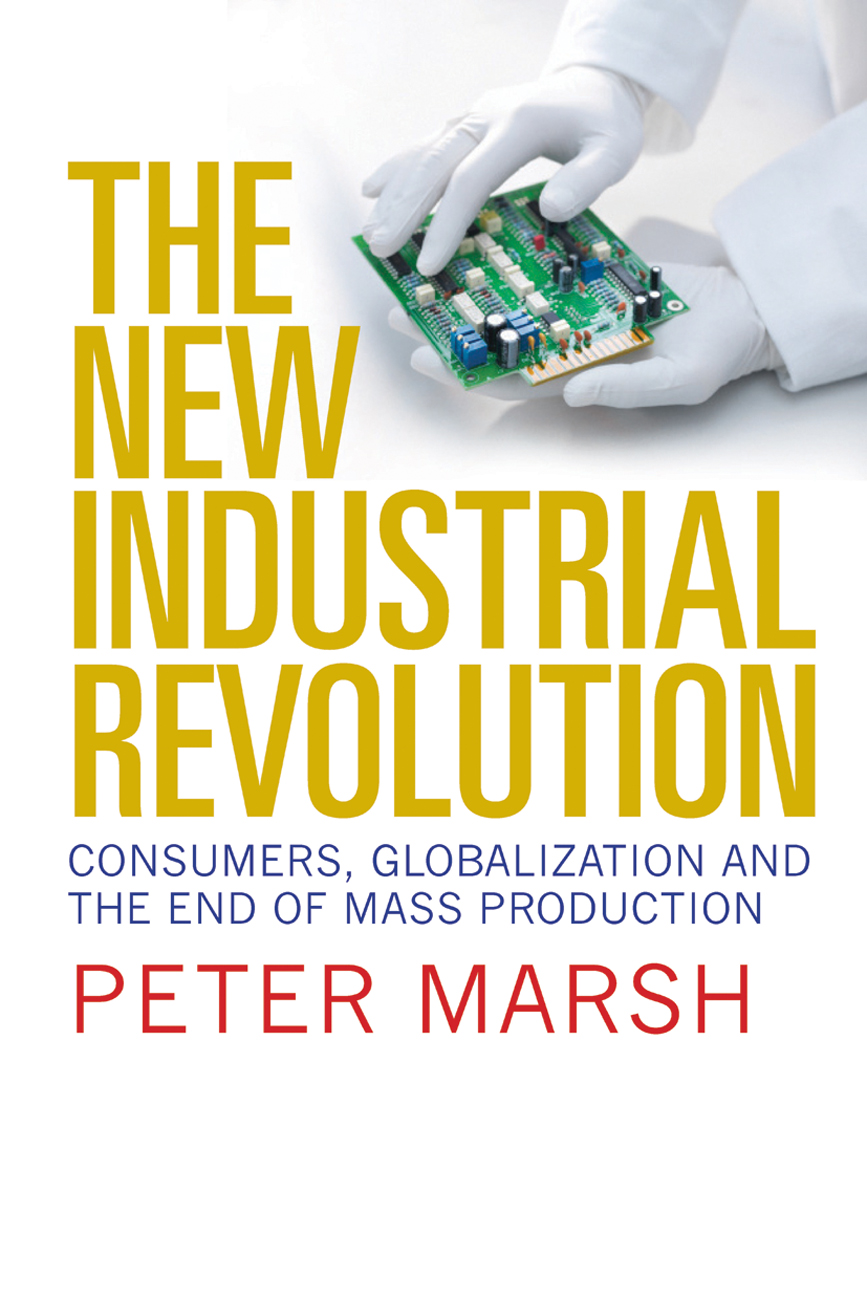Post
BOOK REVIEW: The New Industrial Revolution, by Peter Marsh
13 Jun 2016
The New Industrial Revolution: Consumers, Globalization and the End of Mass Production
by Peter Marsh. Yale University Press, 2012. £25
Review by David Michon
There's something happening in the world of business, says Peter Marsh. But, isn't there always? Not quite like this, he says. We are in the midst of an industrial revolution - the world's fifth, which began roughly in 2005. Set to unfold over the next two and half decades, this shift can be attributed, according to Marsh, to several factors, including: an increasingly connected and expansive global manufacturing circuit; smaller, niche production, with more customisation; environmental responsiveness; and the opening up of China.
Using anecdotal segues, Marsh describes a history of manufacturing based on constant renewal, one that always seems to find a way to grow despite challenges at every step, whether through discovering new sources for raw materials, new technologies to assist in production (such as biotech or nanotechnology) or - of course - creating new consumer markets, such as with mass customisation. Far from being in decline, as many have warned, the manufacturing industry today is getting bigger and bigger. Industrial output in 2010 was, Marsh notes, one and half times what it was in 1990, and 57 times what it was in 1900.
What is interesting in The New Industrial Revolution is that Marsh primarily tells the human side of the story, starting with the English clockmaker who reformed steelmaking in the eighteenth century (Benjamin Huntsman, of Doncaster, who developed the "crucible method"). The narrative is very much driven by people and their ambitions.
Marsh published this book in 2012, just a year after Jeremy Rifkin published his book heralding The Third Industrial Revolution (not the Fifth), and nearly a decade after Richard Florida anointed the post-industrial Creative Class as our economic future. In the case of Marsh versus Rifkin, they seem to be on a very similar page at least when it comes to the present day. But, is it manufacturing or creativity that runs the world, and what does it mean for cities? Though cities were an obsession for Florida (really the only place where a Creative Class could survive), for Marsh they are strangely not much of concern. So, he leaves it up to the Journal of the London Society to briefly consider it - or at least ask the question.
If future economic opportunity truly lies more with manufacturing than with intellectuals and artists, what would a modern city that embraces manufacturing industries in city centres look like? Does the shift to smaller, and more environmentally "responsive" industry mean that we could, and should, truly "welcome manufacturing back into the heart of our cities?" Or do you want to get rents etc in there too?
